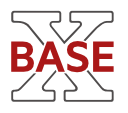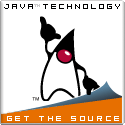Enterprise information integration (EII) is the ability to support a unified view of data and information for an entire organization. In a data virtualization application of EII, a process of information integration, using data abstraction to provide a unified interface for viewing all the data within an organization, and a single set of structures and naming conventions to represent this data; the goal of EII is to get a large set of heterogeneous data sources to appear to a user or system as a single, homogeneous data source.
Representational State Transfer (REST) is a software architectural style that defines a set of constraints to be used for creating Web services. Web services that conform to the REST architectural style, termed RESTful Web services (RWS), provide interoperability between computer systems on the Internet. RESTful Web services allow the requesting systems to access and manipulate textual representations of Web resources by using a uniform and predefined set of stateless operations. Other kinds of Web services, such as SOAP Web services, expose their own arbitrary sets of operations.
eXist-db is an open source software project for NoSQL databases built on XML technology. It is classified as both a NoSQL document-oriented database system and a native XML database. Unlike most relational database management systems (RDBMS) and NoSQL databases, eXist-db provides XQuery and XSLT as its query and application programming languages.

In computing, JavaScript Object Notation (JSON) is an open-standard file format that uses human-readable text to transmit data objects consisting of attribute–value pairs and array data types. It is a very common data format used for asynchronous browser–server communication, including as a replacement for XML in some AJAX-style systems.
Ajax is a set of Web development techniques using many web technologies on the client side to create asynchronous Web applications. With Ajax, web applications can send and retrieve data from a server asynchronously without interfering with the display and behavior of the existing page. By decoupling the data interchange layer from the presentation layer, Ajax allows web pages, and by extension web applications, to change content dynamically without the need to reload the entire page. In practice, modern implementations commonly utilize JSON instead of XML due to the advantages of JSON being native to JavaScript.
A Web API is an application programming interface for either a web server or a web browser. It is a web development concept, usually limited to a web application's client-side, and thus usually does not include web server or browser implementation details such as SAPIs or APIs unless publicly accessible by a remote web application.
JAX-RS: Java API for RESTful Web Services (JAX-RS) is a Java programming language API spec that provides support in creating web services according to the Representational State Transfer (REST) architectural pattern. JAX-RS uses annotations, introduced in Java SE 5, to simplify the development and deployment of web service clients and endpoints.
Yahoo! Query Language (YQL) is an SQL-like query language created by Yahoo! as part of their Developer Network. YQL is designed to retrieve and manipulate data from APIs through a single Web interface, thus allowing mashups that enable developers to create their own applications.
DataNucleus is an open source project which provides software products around data management in Java. The DataNucleus project started in 2008.

Apache Wink is an open source framework that enables development and consumption of REST style web services.

This article refers to the last FarPoint Edition of the Spread Product line. Spread is now developed by GrapeCity, Inc. Since the acquisition, Spread for Biztalk Server has been removed from the product line and SpreadJS, a JavaScript version, has been added.
Maveryx is a cross-platform GUI Test Automation Framework developed by Maveryx Srl. This Framework provides functional UI, regression, data-driven, and keyword-driven testing capabilities to test a wide range of Desktop and Web technologies. Maveryx Test Automation Framework allows testing many different GUI technologies. Unlike other testing tools, Maveryx does not need recordings, code instrumentation, GUI Maps or Object Repositories to create and run automated tests.
Canigó is the name chosen for the Java EE framework of the Generalitat de Catalunya.

ColdBox is an open-source, conventions-based, modular web application framework intended for building enterprise applications with CFML. ColdBox uses Convention over configuration and aims for simplicity, rapid development. It makes use of Model-view-controller, Dependency injection, Unit testing, Aspect-oriented programming architectural patterns. ColdBox allows for development of stand-alone modules which can be shared across apps. ColdBox is an active and heavily documented CFML framework.

BaseX is a native and light-weight XML database management system and XQuery processor, developed as a community project on GitHub. It is specialized in storing, querying, and visualizing large XML documents and collections. BaseX is platform-independent and distributed under a permissive free software license.
Apache Attic is a project of Apache Software Foundation to provide process and solutions to make it clear when an Apache project has reached its end of life. The Attic project was created in November 2008. Also the retired projects can be retained.
Oracle TopLink is mapping and persistence framework for Java developers. TopLink is produced by Oracle and is a part of Oracle's OracleAS, WebLogic, and OC4J servers. It is an object-persistence and object-transformation framework. TopLink provides development tools and run-time functionalities that ease the development process and help increase functionality. Persistent object-oriented data is stored in relational databases which helps build high-performance applications. Storing data in either XML or relational databases is made possible by transforming it from object-oriented data.
Lokalise is a web-based translation system ; that is to say, it is a globalization management system (GMS). It targets website, software, mobile app, and documentation that require frequently updated content in multiple languages.









